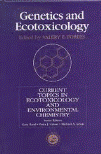Papers in the Biological Sciences

Valery Forbes Publications
Document Type
Article
Date of this Version
10-2010
Abstract
To be useful in informing environmental management decisions, ecological risk assessments (ERAs) need to be expressed in value-relevant terms (USEPA 2009). Making decisions about accepting more or less ecological resources for more or less economic and social gain depends upon public values. ERAs have been criticized for not delivering value-relevant results and for therefore not being useful as a basis for management decisions (Gibbs 2010). We agree that ERAs need to be value-relevant, but we also must be explicit about what constitutes science and what constitutes values in this process. In a recent editorial, Backhaus et al. (2010) discuss the pressures faced by scientists to mix science with values when performing risk assessments and stress the importance of resisting the allure of so-called normative science. We strongly support this view. Public values are not a part of science, and the values of scientists do not necessarily reflect the values of the public. Here we elaborate on these two good reasons for keeping science and values separate in environmental decision making.


Comments
Published in Integrated Environmental Assessment and Management 6:4 (October 2010), pp. 784–785, doi: 10.1002/ieam.117 Copyright © 2010 SETAC; published by Wiley-Blackwell. Used by permission.